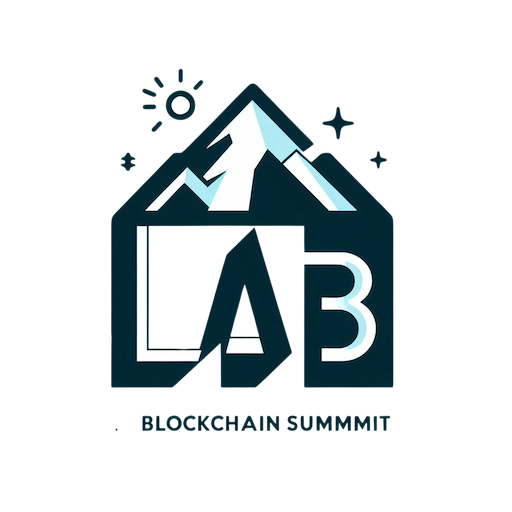What if we lived in a world where where blockchain technology isn’t just secure but invincible against even the most advanced cyber threats. Quantum blockchain promises to revolutionize the way we think about digital security and data integrity. For blockchain enthusiasts, especially those still exploring the complexities of this technology, understanding quantum blockchain can seem like revealing the next level of a game.
Quantum computing’s potential to crack traditional cryptographic methods poses a significant risk to current blockchain systems. This emerging field addresses those concerns by combining quantum mechanics with blockchain to create an unbreakable chain of data. It’s a game-changer for anyone keen on staying ahead in the blockchain space.
Consider the excitement of attending blockchain summits and discovering the latest advancements in blockchain technology. This article will guide you through the essentials of quantum blockchain, how it addresses current security challenges, and what the future holds for this groundbreaking technology.
Understanding Quantum Blockchain
Quantum blockchain merges quantum mechanics with blockchain technology, aiming to bolster digital security and enhance data integrity. It leverages key quantum properties like entanglement and measurement. Understanding these core concepts will help blockchain enthusiasts appreciate the potential of this innovative technology.
Key Concepts in Quantum Blockchain
Quantum Entanglement: Quantum entanglement occurs when particles become interconnected such that the state of one particle directly influences the state of another, regardless of distance. This forms the backbone of non-tamperable and traceable quantum states in a blockchain.
Quantum Measurement: Quantum measurement refers to the process of measuring a quantum state. Once measured, the quantum state collapses to a definite state, making tampering more detectable. This inherent property boosts the security measures in quantum blockchains.
How Quantum Blockchain Addresses Pain Points
Quantum blockchain tackles several critical issues in traditional blockchain systems.
- Security: By employing quantum entanglement and measurement, quantum blockchain enhances cryptographic security. Traditional cryptographic methods face vulnerabilities with the rise of quantum computing. Quantum cryptography counters these threats effectively.
- Tamper-Proofing: The connected states in a quantum blockchain make any unauthorized alterations immediately detectable. This tamper-resistant feature addresses concerns about data integrity.
- Scalability: Although still in the experimental stages, quantum blockchains aim to offer enhanced scalability. The interconnected quantum states could enable faster transaction verifications without compromising security.
Practical Examples
- Financial Transactions: In financial services, seamless quantum blockchains can secure transactions, ensuring data remains tamper-proof and traceable. This eliminates fraud risks and enhances trust in digital payments.
- Supply Chain Management: Quantum blockchain can track goods through complex supply chains, providing an unalterable record of item histories. This transparency ensures authenticity and reduces supply chain fraud.
- Stay Updated: Follow the latest developments in quantum blockchain through authoritative blockchain news portals and research publications.
- Attend Conferences: Participate in blockchain summits, like the LAB Blockchain Summit, to connect with experts and learn about new trends.
- Experiment and Learn: Use blockchain platforms that offer sandbox environments to experiment with quantum mechanics in blockchain.
For more insightful updates on quantum blockchain, subscribe to our newsletter. Be at the forefront of technology and never miss an important update.
Advantages of Quantum Blockchain

Quantum blockchains offer multiple benefits, each grounded in unique quantum principles. They provide enhanced security, improved scalability, and novel applications.
Enhanced Security
Quantum blockchains use the inherent randomness and irreversibility of quantum measurements. These characteristics make it extremely hard for attackers to alter the blockchain, as any tampering attempts become detectable. This level of security is crucial for protecting valuable data and financial transactions.
Improved Scalability
Quantum consensus mechanisms, like those based on quantum zero-knowledge proofs, contribute to better scalability. These mechanisms considerably reduce the computational resources and energy required compared to classical algorithms such as proof-of-work. A more scalable system means faster transactions and reduced bottlenecks, providing a smoother user experience.
Novel Applications
Quantum mechanics enable new blockchain applications, including quantum-secure communication and quantum-resistant cryptography. These applications can revolutionize industries by offering robust protection against future quantum computing threats. For example, quantum-secure communication could enhance privacy in financial transactions, while quantum-resistant cryptography ensures long-term data security.
Practical Advice for Enthusiasts
- Stay Informed: Regularly check reputable sources and attend blockchain conferences to keep up with the latest advancements.
- Experiment: Try out quantum blockchain platforms and tools to gain hands-on experience.
Actionable steps
Subscribe to our newsletter for the latest updates and tutorials on quantum blockchain advancements, ensuring you’re always ahead in the rapidly evolving world of blockchain technology.
Challenges and Limitations
Quantum blockchain, even though its promising potential, faces several challenges and limitations that affect its development and adoption. There is still a lot to understand and demystify its potential, but also its challenges. You will frequently see in the news concerns regarding how quantum computing can pose critical threats to Blockchain Security
Technological Limitations
Quantum computing technology is still in its early stages. Large-scale, fault-tolerant quantum computers capable of breaking classical cryptography aren’t available yet. This technological infancy means that practical, large-scale implementations of quantum blockchain are not currently feasible. Researchers continue to make strides, but significant advances are needed before quantum blockchain can be widely adopted.
Lack of Standardization
There is no widely accepted standard or framework for developing and implementing quantum blockchains. This absence of standardized protocols hinders adoption and interoperability. Different developers working on diverse quantum blockchain projects can result in fragmented systems that don’t communicate effectively with each other. Establishing common standards and frameworks is essential to ensure smoother integration and broader adoption across various industries.
Theoretical Nature
Much of the existing research on quantum blockchains remains theoretical. Practical implementations are limited, and more empirical studies are necessary to validate the feasibility and effectiveness of these systems. Real-world testing and pilot projects are crucial to move beyond theoretical models and understand the practical implications, scalability, and security of quantum blockchain technology.
Interests and Pain Points
Blockchain enthusiasts often struggle with complex blockchain concepts and desire to stay updated with the latest advancements. Quantum blockchain introduces new layers of complexity, making it even more challenging for beginners and intermediate learners to grasp. To address these pain points, resources like detailed tutorials, webinars, and community forums are essential. These resources can break down complicated theories into manageable steps and provide hands-on guidance.
Practical Advice
For those passionate about quantum blockchain, staying informed through reputable sources and engaging with the community is vital.
- Educational Resources: Use online courses, webinars, and tutorials from trusted institutions to deepen understanding.
- Networking: Participate in blockchain and quantum computing conferences to stay updated with the latest research and industry trends.
- Hands-on Experience: Experiment with emerging quantum blockchain platforms to gain practical insights.
- Community Engagement: Join forums and online communities to discuss challenges and share knowledge with peers.
Actionable Tips
To remain at the forefront of quantum blockchain advancements, subscribe for updates and tutorials that can simplify complex concepts and offer actionable insights. Engage with industry experts and continuously expand your knowledge to navigate the evolving world of quantum blockchain successfully.
Future Outlook
Quantum blockchain technology has the potential to reshape various industries by addressing existing security and scalability issues. It’s poised to advance secure data storage, decentralized finance, and quantum-resistant digital infrastructure.
Key Areas of Focus
- Quantum Consensus Mechanisms: New quantum consensus mechanisms are being designed to enhance blockchain security and efficiency. These mechanisms potentially minimize the time required for transaction validation, making processes faster and more secure.
- Quantum-Resistant Cryptography: With the advent of quantum computers, traditional cryptographic methods may become vulnerable. Researchers are developing quantum-resistant algorithms to protect data from quantum attacks, ensuring the longevity and security of blockchain systems.
- Integration of Quantum Communication Protocols: Quantum communication protocols offer secure channels because of the principles of quantum mechanics. Integrating these protocols with blockchain systems could further boost security by preventing eavesdropping and data breaches.
Implications for Industries
Quantum blockchain can revolutionize secure data storage by leveraging quantum cryptography. This technology could provide tamper-proof records vital for sectors like finance, healthcare, and governance.
In decentralized finance (DeFi), quantum blockchain enhances transaction security and system reliability. Quantum-resistant cryptography ensures financial transactions remain protected against emerging threats, fostering trust and wider adoption.
Research and Development
Significant research and development are needed to tackle the challenges quantum blockchain faces. The technology remains in its infancy, with many theoretical concepts yet to be practically validated. Collaboration between academia and industry is essential to refine these technologies and create standardized protocols.
Practical Advice for Blockchain Enthusiasts
- Stay Informed: Follow reputable sources like IEEE and CryptoNews for the latest updates in quantum blockchain.
- Engage with the Community: Participate in forums and industry events to network and learn from experts.
- Use Educational Resources: Online courses, webinars, and tutorials can help build foundational knowledge.
- Hands-On Experience: Experiment with blockchain platforms like Ethereum and explore quantum cryptography through tools like Quipper.
How to Get Involved
For those eager to navigate the evolving world of quantum blockchain, subscribe to our newsletter for tutorials, industry updates, and expert advice. Stay ahead by gaining practical insights and tools tailored for blockchain enthusiasts.
Key Takeaways
- Quantum Blockchain Revolutionizes Digital Security: Quantum blockchain merges quantum mechanics with blockchain technology, offering enhanced digital security and data integrity by leveraging properties like entanglement and measurement.
- Enhanced Cryptographic Security: By employing quantum cryptography, quantum blockchain addresses the vulnerabilities of traditional cryptographic methods, providing strong defenses against future quantum computing threats.
- Tamper-Proof and Scalable: Quantum blockchain ensures data integrity through its tamper-resistant structure and potentially offers improved scalability, enabling faster transaction verifications without compromising security.
- Diverse Applications: This technology has practical applications in fields such as financial transactions and supply chain management, where it can secure and trace data, reducing fraud and enhancing trust.
- Ongoing Research and Challenges: While promising, quantum blockchain technology faces challenges like technological limitations and lack of standardization, necessitating ongoing research and development for practical implementation.
Frequently Asked Questions
What is quantum blockchain?
Quantum blockchain is a fusion of quantum mechanics and blockchain technology aimed at enhancing digital security and data integrity by utilizing principles like entanglement and quantum measurement.
How does quantum blockchain improve security?
Quantum blockchain boosts security by using quantum principles to increase the detectability of any data tampering, making it virtually tamper-proof.
Why is quantum blockchain important for future security?
As quantum computing poses threats to current encryption methods, quantum blockchain provides quantum-resistant cryptography, ensuring long-term security and data integrity.
What industries could benefit from quantum blockchain?
Industries such as finance, healthcare, and governance could benefit significantly from quantum blockchain by revolutionizing secure data storage and decentralized finance.
What are the key components of quantum blockchain?
Key components include quantum consensus mechanisms, quantum-resistant cryptography, and the integration of quantum communication protocols to bolster security and scalability.
What challenges does quantum blockchain face?
Quantum blockchain faces challenges like the need for significant research and development, requiring collaboration between academia and industry to refine technologies and create standardized protocols.
How can blockchain enthusiasts get involved in quantum blockchain?
Blockchain enthusiasts can stay informed, engage with the community, use educational resources, and gain hands-on experience to navigate the evolving landscape of quantum blockchain.
Where can I find more information and updates about quantum blockchain?
Subscribe to industry updates, tutorials, and expert advice to stay informed about the latest advancements in quantum blockchain technology.
Expand Your Knowledge
Explore current blockchain implementation challenges to gain a balanced perspective on the hurdles facing blockchain adoption.
